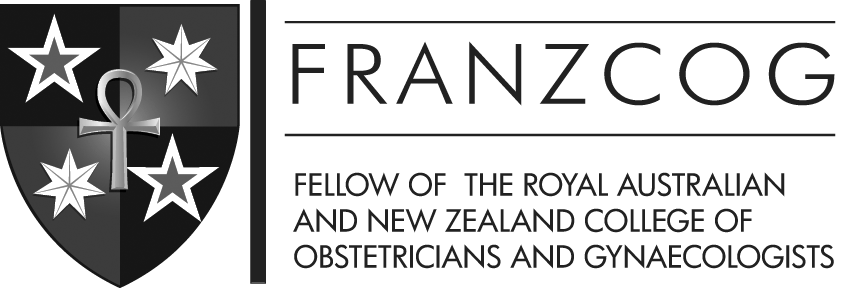Menopause
What is Menopause?
It is a natural decline in hormonal function in women that happens around 52 years of age. Menopause is diagnosed if there is no menstruation for 12 months. (In the absence of other conditions.)
Menopause is an unavoidable phase in every woman's life but not every woman experiences unpleasant symptoms. Time leading into menopause is called perimenopause and can last 5-10 years. This is a time when the menstrual cycle may change and women experience some of the menopausal symptoms.
Symptoms of Menopause
Menopause may lead to physical and emotional changes in some women such as
- irregular menstrual periods
- dryness of the vagina
- dry skin
- thinning hair
- slow metabolism
- weight gain
- hot flashes
- night sweats
- problems with sleeping
- mood changes
- irritability
- decline ability to focus and concentrate
- sagging of the breasts
Cause
Menopause is a natural process that takes place in every woman as she reaches her early forties or fifties. The production of the hormones by ovaries that regulate the menstrual cycle, namely oestrogen and progesterone, decrease. Eventually the ovaries stop producing eggs end menstruations stops.
Premature menopause
Premature menopause is diagnosed once women have stopped menstruating for 12 months before the age of 40 with blood tests supporting this diagnosis.
There are factors that can induce early menopause include the following:
- Cancer treatment: Chemotherapy (treatment with chemical agents) and radiotherapy (treatment by exposure to radiation) can cause menopause symptoms and a temporary or permanent stop to your menstruation.
- Failure of ovaries: Autoimmune diseases or genetic factors can cause your ovaries to produce less than normal amounts of reproductive hormones. This is known as primary ovarian insufficiency and can lead to premature menopause.
- Surgery: Surgery such as total hysterectomy and bilateral oophorectomy that involve the removal of your uterus and both ovaries will immediately stop menstruation.
Diagnosis
We can identify your transition to menopause with your signs and symptoms. Menopause is diagnosed once a woman has stopped menstruating for 12 months. To confirm the diagnosis, we may order blood tests to check your levels of follicle-stimulating hormone (FSH) and estrogen (oestradiol), as a decrease in the level of Oestrogen hormone can project menopause.
Treatment
Menopause itself does not need treatment, but treatment may be required to control its signs and symptoms.
Lifestyle remedies for Menopause
Some of these lifestyle remedies can also help you reduce or prevent the symptoms of menopause
- Cool off hot flashes by drinking cold water or staying in a cool room. Identify factors that trigger your hot flashes, like hot beverages, alcohol, caffeine and spicy foods, and try to avoid them
- Use water-based vaginal lubricants to help you with vaginal dryness and discomfort
- Reduce stress, get adequate sleep, eat healthy, stay active and don't smoke
- Exercise regularly. Certain exercises called Kegel exercises can help you strengthen your pelvic floor muscles and improve urinary incontinence
- Some women find Yoga / Pilates/ Meditation useful exercise
- Some women also find dietary changes helpful
Hormone replacement therapy (HRT)
We may recommend treatment with hormones including estrogen and/or progestin for hot flashes and bone loss. It may also help prevent cardiovascular problems if started within five years of menopause.
Vaginal oestrogen
Small doses of estrogen in the form of cream or pessaries can help you manage vaginal dryness, urinary symptoms and discomfort during intercourse.
Antidepressants
Low-dose antidepressants can help you manage hot flashes when hormone replacement therapy is not advisable for you, and will also help improve your mood. There are some other non hormonal medications that can be used as an alternative to HRT.
Other Medications
You may also be prescribed medications to reduce your bone loss and risk for fractures if you are high risk or already have developed osteoporosis.
Complications
Some of the possible complications associated with menopause include the following:
- Risk for heart and blood vessel (cardiovascular) diseases increases with the decrease in estrogen production.
- Bone density may decrease, making them brittle and leading to a condition known as osteoporosis. This can make you more prone to fractures.
- Vaginal and urethral tissues will begin to lose their elasticity, and you may experience the sudden urge to urinate or may develop (urge incontinence or stress incontinence). You may also become more prone to urinary tract infections.
- The loss of moisture and elasticity of your vagina can cause discomfort during intercourse and can affect your sexual desire (libido).
- As the rate of your metabolism slows down, you may start gaining weight.
You can find very useful and detailed information regarding Menopause at Australian Menopause Society as well as Jean Hailes Institute websites.






